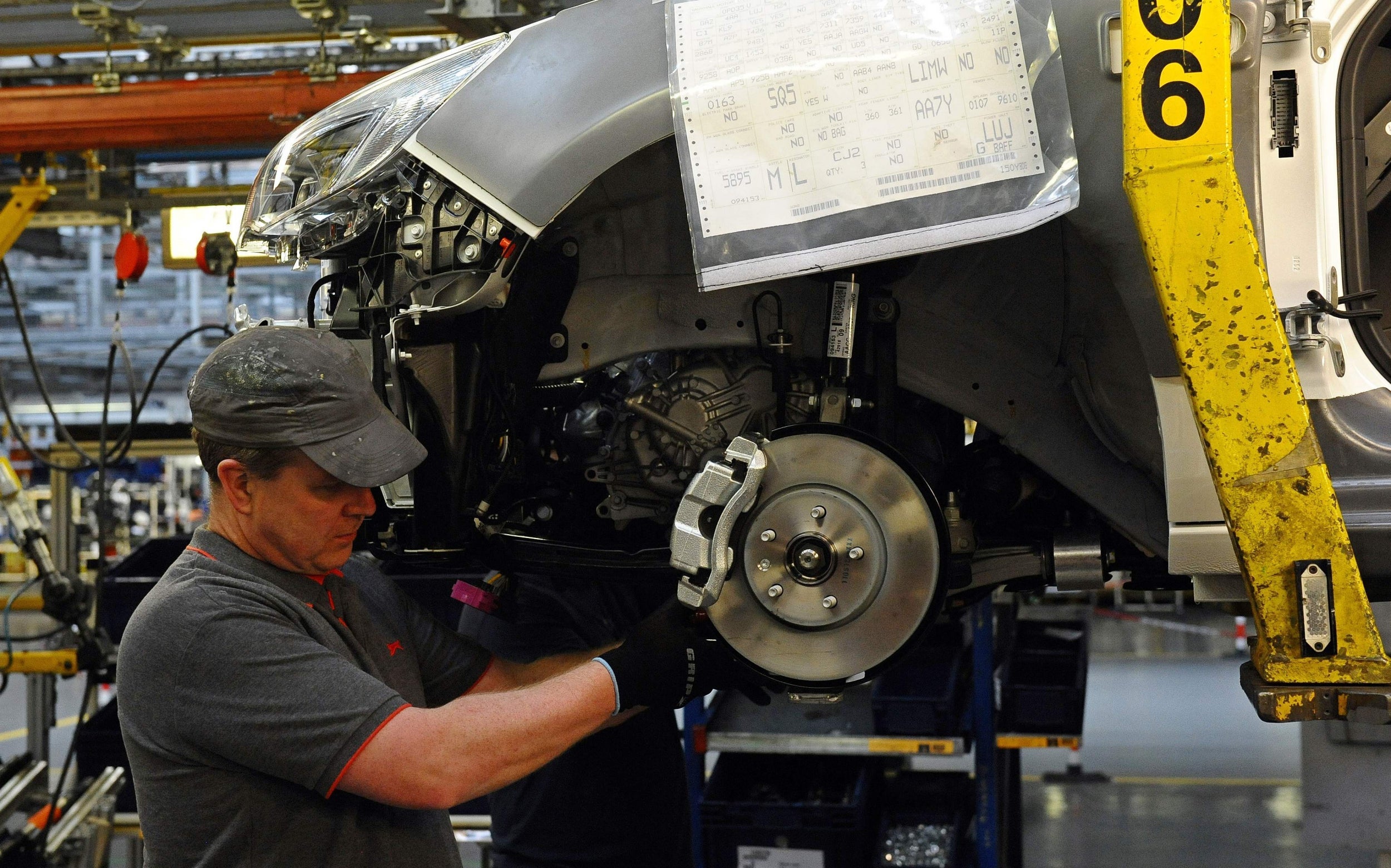UK car industry slumps for third straight year as production hits lowest level since 2010
Brexit and weak Chinese demand among multiple problems facing Britain's vehicle manufacturers

British car production slumped for the third year in a row in 2019, dropping by 14.2 per cent on the previous twelve months. UK factories produced some 1.3 million units, according to figures released by the main industry body.
The reduction was attributed to weak consumer and business confidence, partly fuelled by Brexit; a slowdown in overseas markets, particularly China (where UK exports fell by a quarter); and technical delays caused by model changeovers and extended a Brexit-related factory shutdowns.
Production of commercial vehicles and engines also fell. An independent forecast for production in 2021 commissioned by the Society of Motor Manufacturers and Traders (SMMT) suggest that the industry’s output will slip again, to 1.27 million units, the lowest in a decade.
Mike Hawes, chief executive of the SMMT expressed “grave concern” on behalf of his members, who range from huge global concerns such as Nissan, Toyota, BMW and Tata to smaller component makers and specialist producers.
The sustained decline in the industry’s fortunes threatens the livelihoods of many thousands of well-paid workers in the UK; some 1 0ne on six jobs in the North East of England, say the SMMT, relies on the automotive sector – an important factor in rebalancing regional growth and prosperity, as the government has promised.
Mr Hawes commented: “The fall of UK car manufacturing to its lowest level in almost a decade is of grave concern. Every country in the world wants a successful automotive sector as it is a driver of trade, productivity and jobs.
"Given the uncertainty the sector has experienced, it is essential we re-establish our global competitiveness and that starts with an ambitious free trade agreement with Europe, one that guarantees all automotive products can be bought and sold without tariffs or additional burdens. This will boost manufacturing, avoid costly price rises and maintain choice for UK consumers. Negotiations will be challenging but all sides stand to gain and this sector is up for it.”
He sharply rejected rumours form Downing Street that suggest the government thinks the car industry is in “secular decline".
Tariffs on British exports of cars, and UK imports of components from integrated EU-wide supply chains, would cost the industry and consumers “billions” added Mr Hawes.
Asked about the possibility of yet more “no deal” preparations by the end of 2020, when the post-Brexit transition period with the EU expires, he stressed once again that “no deal” is not an option the industry is prepared to seriously contemplate, and that if the talks fail to reach a conclusion by, say the end of September, the UK could be staring at a “cliff edge” Brexitt.
In such circumstances, the SMMT expect the government to request an extension to the transition period until an agreement that offered certainty to investors could be achieved.
Investment in the UK industry is also running low. A £1bn “vote of confidence” from Jaguar Land Rover in the UK's future as electric vehicle base was one bright spot in an otherwise dismal scene. Overall investment in 2019 stands at £1.1 bn, compared to the long-run average of £2.7bn.
The SMMT expresses confidence that industry output will not fall below the symbolical leek of 1 million units, but even as this stand the UK’s car industry is not much larger, by volume, than that of Slovakia or the Czech republic, and about half the size of Spain’s. The forecasts do not include any estimates for what might happen if any of the UK’s bigger players decided to pull out of the UK, post-Brexit or for other commercial reasons.
The plant most immediately threatened by post-Brexit uncertainties .is the Vauxhall plant at Ellesmere Port, owned by the Peugeot Group (PSA). PSA chief Carlos Tavares has said that it needs to be assured about a new trade deal by the summer before committing to build a new generation Astra on Merseyside. Optimistically, the shape of a UK-EY trade deal might be published by then.
Honda, based in Swindon, has already announced that it will run down production of the Civic and withdraw from the UK as manufacturing base next year, with e loss of 3,400 jobs at the main complex, plus many more in business that rely on the business for their livelihoods.
Subscribe to Independent Premium to bookmark this article
Want to bookmark your favourite articles and stories to read or reference later? Start your Independent Premium subscription today.

Join our commenting forum
Join thought-provoking conversations, follow other Independent readers and see their replies